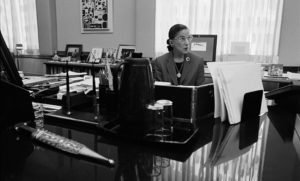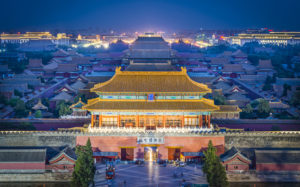
CDC changes its COVID-19 testing guidelines, a federal judge orders the USPS to prioritize mail related to the election, and more…
IN THE NEWS
- The Centers for Disease Control and Prevention (CDC) clarified its COVID-19 testing guidance, now recommending that asymptomatic individuals be tested if they have been in close contact with a person who had coronavirus. Public health officials criticized the agency for previously stating that asymptomatic individuals do not need COVID-19 tests even if they have been in close contact with someone who had coronavirus. Thomas File, president of the Infectious Disease Society of America, stated that “the return to a science-based approach … is good news for public health” and urged officials to “follow medical guidance of experts in the field.” The same day, the CDC updated its COVID-19 transmission guidance to state that the coronavirus is primarily spread through airborne transmission, but the CDC rescinded the guidance two days later because it had been “posted in error.”
- A federal judge ordered the U.S. Postal Service to prioritize all election-related mail. Postmaster General Louis DeJoy previously claimed that he will delay administrative changes until after the election, but several candidates for office and New York voters brought a lawsuit alleging bad faith cost-cutting in an attempt to erode the right to vote. United States District Judge Victor Marrero wrote that “the right to vote is too vital a value in our democracy to be left in a state of suspense in the minds of voters weeks before a presidential election, raising doubts as to whether their votes will ultimately be counted.”
- The U.S. Department of Justice announced that New York City, Seattle, and Portland, Oregon have unlawfully permitted violence and destruction of property in their cities. The Justice Department issued the designations in response to President Donald J. Trump’s memorandum that called for a review of federal funds going to cities and states that failed to control protests and rioting for racial justice this summer. Attorney General William Barr stated that the Justice Department “cannot allow federal tax dollars to be wasted when the safety of the citizenry hangs in the balance.” New York City Mayor Bill de Blasio called the designation an unconstitutional political stunt.
- California Governor Gavin Newsom signed an executive order directing state agencies to require all new cars and passenger trucks sold in California to be zero-emission vehicles by 2035. Governor Newsom stated that the transportation sector is responsible for more than half of California’s carbon pollution and called the executive order “the most impactful step our state can take to fight climate change.” The Coalition for Clean Air praised Newsom’s executive order. The executive order also gained praise from trade groups including the Alliance for Automotive Innovation.
- A federal court granted a preliminary injunction of a U.S. Department of Commerce rule that would have required app stores to block downloads of TikTok and WeChat beginning September 20. The Commerce Department’s planned restrictions sought to implement two executive orders on national security concerns, pressuring TikTok and WeChat’s parent companies to sell the apps to U.S. businesses. On the same day that the federal court granted the injunction, Commerce Secretary Wilbur Ross announced that his agency would voluntarily delay the restrictions on TikTok after “recent positive developments” in their negotiations with TikTok’s parent company.
- The Executive Office for Immigration Review issued a notice of proposed rulemaking that would shorten the amount of time given to asylum seekers to complete their applications from one year after their first hearing to 15 days. The agency stated that an asylum seeker should be ready to “state his or her claim as quickly as possible.” Aaron Reichlin-Melnick, policy counsel at the American Immigration Council, explained that when combined with another proposed rule from June, the new policies would require tens of thousands of people per year to submit a completed asylum application and a $50 fee receipt within 15 days of an initial hearing, usually without assistance from interpreters or attorneys.
- The Board of Governors of the Federal Reserve System requested comments on its plans to modernize the Community Reinvestment Act, which aims to promote lending and investment in low-income neighborhoods. The purposes of the proposed changes are to meet the needs of low-income communities effectively, provide greater uniformity and transparency, account for the characteristics of banks and the markets in which they operate, and incorporate the effects of mobile and internet banking. Federal Reserve governor Lael Brainard stated that the Act remains “as important as ever as the nation confronts challenges associated with racial equity and the COVID-19 pandemic” and emphasized that the Act must be an “effective tool to address ongoing systemic inequities in access to credit and financial services.”
- Democrats in the U.S. House of Representatives introduced a continuing appropriations bill to extend government funding through December 11, 2020. Although Democrats intended to prevent a government shutdown, U.S. Senate Republicans opposed the resolution because it lacked a provision to provide coronavirus relief funds to farmers. Senator Mitch McConnell (R-Ky.) tweeted that the resolution “shamefully leaves out key relief and support that American farmers need.” Democrats criticized President Donald J. Trump for using coronavirus relief funds to target his key constituencies for reelection. The government will exhaust its funds on September 30, 2020 if the parties do not reach an agreement, which will result in a government shutdown.
- The Federal Energy Regulatory Commission finalized a rule that allows small home rooftop solar panels to participate in the same wholesale electricity markets as traditional power plants. Democratic Commissioner Richard Glick said in a statement that the change will improve the reliability of the electricity grid and help to develop new renewable energy resources. Gregory Wetstone, president of the American Council on Renewable Energy, praised the rule but noted that there are still market barriers for distributed energy sources such as resource-specific price floors, which artificially raise the price of renewable energy. Republican Commissioner James Danly opposed the rule, writing that the agency does not have statutory jurisdiction over local distribution practices.
WHAT WE’RE READING THIS WEEK
- In a National Bureau for Economic Research working paper, Sumedha Gupta, professor of economics at Indiana University–Purdue University Indianapolis, and her coauthors found that tightening prescription restrictions of one opioid caused an increase in the prescriptions of other opioids. Although prescriptions of tramadol and hydrocodone combination products—the leading opioids in the market—decreased after federal law heightened restrictions on these drugs, Gupta and her coauthors noted that doctors prescribed other opioids more frequently after the restrictions were implemented. As a result, Gupta and her coauthors determined that there was no statistically significant decrease in total opioid prescriptions.
- In an article in the Yale Journal on Regulation, Rachel Sachs, a professor at Washington University in St. Louis School of Law, argued that new industries should be regulated differently than established industries because new industries innovate in an ongoing, collaborative process. Sachs defined these new industries as producers of “intermediate technologies,” which are developed through iterative, incremental improvements. She discussed life sciences as the prime example, arguing that the U.S. Food and Drug Administration’s approval processes and patent requirements should be relaxed to allow incremental improvements to drugs, biologics, and medical devices to reach consumers more quickly.
- The U.S. Government Accountability Office (GAO) found that almost all states have a network of emergency health care volunteers. The GAO report analyzed data from four states as of September 2019 that deployed volunteers in response to tornadoes, wildfires, increased migration across the southern border, and COVID-19. The GAO found that in order to respond to public health emergencies, states need an adequate number of well-trained staff. As of May 26, emergency health volunteers have been deployed in 42 states in response to COVID-19, causing GAO to do additional research on how states have used health care volunteers to respond to the pandemic.
FLASHBACK FRIDAY
- In an essay in The Regulatory Review, David Spence, a professor at the University of Texas at Austin School of Law, analyzed a trend toward federal control of electricity markets in several U.S. Supreme Court rulings. Spence explained how the Court clarified that the Federal Energy Regulatory Commission has jurisdiction over practices that directly affect interstate electricity market prices. Spence also highlighted an opinion by Justice Ruth Bader Ginsburg that struck down state electricity regulations under the Supremacy Clause of the U.S. Constitution. Overall, Spence observed that federal control over electricity regulation would likely continue to increase, but predicted further legal challenges to this control in the future.



